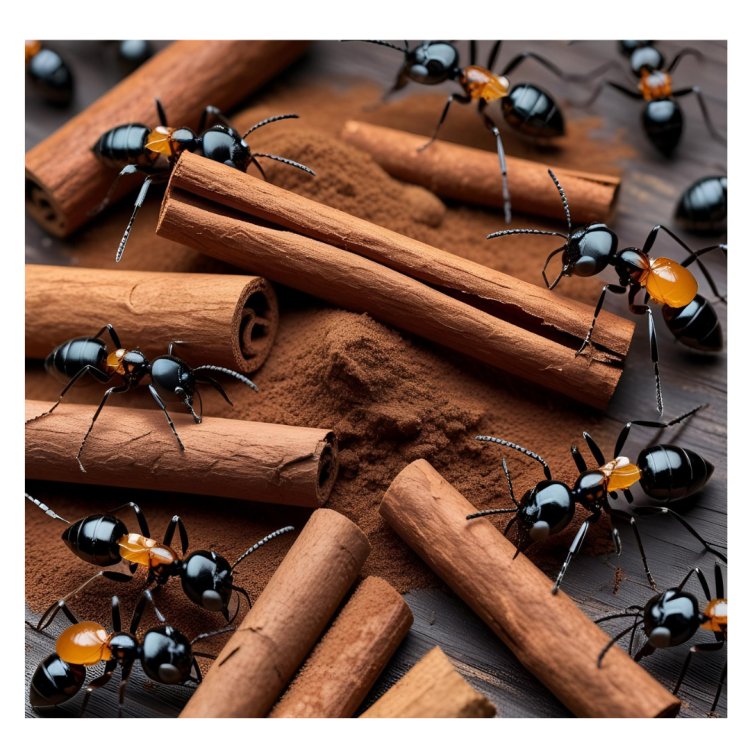Does Cinnamon Kill Ants? We Asked Pest Pros What They Recommend to Banish Ants for Good
Discover if cinnamon repels or kills ants, and explore expert-approved natural and professional methods to keep your home ant-free.

Ants invading your home? Before you reach for harsh chemicals, you might’ve heard that cinnamon can do the trick. But does this beloved pantry spice kill ants or just serve as an impulse barrier? We consulted pest experts to find out—and uncovered more effective, eco-friendly alternatives that work.
1. Cinnamon Doesn’t Kill Ants — It Just Confuses Them
Cinnamon’s active compound, cinnamaldehyde, doesn’t kill ants—it throws them off. Ants navigate using pheromone trails, but the strong scent of cinnamon disrupts these scent pathways, confusing the colony and prompting them to take a detour. Licensed pest pro Nathan Kruger of D‑termination Pest Control describes it as like hitting the reset button on their internal GPS.
In other words: think eviction notice, not extermination. Cinnamon drives ants away temporarily—but doesn’t eliminate the colony.
2. How Long Does Cinnamon Work?
Unfortunately, the scent typically wears off within 1 to 2 days. After that, unless reapplied, ants return unabated. Plus, ground cinnamon from your spice rack is far weaker than concentrated essential oils used in lab tests.
In short, cinnamon is best used as a stopgap, not a standalone solution.
3. How to Use Cinnamon Effectively
If you still want to try cinnamon, here’s how:
-
Sprinkle ground cinnamon across ant trails, entrances, cracks, and baseboards.
-
Wipe or mist a solution of water plus cinnamon oil along those paths.
-
Fresh sticks can be placed within cabinets, pantries, and shoe racks—wherever ants lurk.
Repeat every 24–48 hours to maintain effectiveness. But remember: this method repels—it doesn’t eradicate.
4. Other Natural Weapons That Work
Experts recommend combining cinnamon with other DIY, eco-friendly remedies to get long-lasting control:
Essential Oils
Peppermint, tea tree, citrus, lavender, and eucalyptus oils also disrupt pheromone trails. For a spray: mix 10–20 drops of essential oil + water, and optionally 1 tablespoon of vinegar. Spray along ant pathways and entry points.
Vinegar
A powerful and acidic trail-blocker that can kill ants on contact. Mix equal parts vinegar and water in a spray bottle—clear paths and entryways. But it evaporates quickly, so reapply often.
Food‑Grade Diatomaceous Earth (DE)
Natural, non-toxic powder that dehydrates insects by damaging their exoskeletons. Sprinkle a fine layer where ants walk; avoid mounding, since ants will avoid it.
Coffee Grounds
Used grounds are low-odor yet disrupt ant scent trails—plus, you can reuse kitchen waste. Spread damp grounds around home entry points or garden borders.
5. Why These Methods Work Better Together
Relying on just one natural remedy often sends ants scrambling to another part of your home. Mixing cinnamon, essential oils, vinegar, DE, and coffee grounds forms a multi-layered defense that:
-
Disrupts pheromone trails
-
Creates physical barriers
-
Kills or repels on contact
-
Introduces variety so ants can't adapt
The result? You’re not simply shifting the ant problem—you’re wearing it down from multiple angles.
6. What Experts Recommend for Serious Infestations
Natural remedies help with deterrence but won’t dismantle a full-blown colony. That requires:
-
Identifying the species (fire ants, carpenter ants, etc.)
-
Locating the nest and queen
-
Using bait or targeted insecticides to reach the colony for good.
Entomologist Dr. Tracey Ellis stresses using baits that target the queen, rather than wiping out random workers with sprays.
If this sounds tricky—or the infestation is severe—it’s best to call in professionals. They’ll offer solutions tailored to your specific situation and home.
7. Integrated Pest Strategy: Clean + Seal + Prevent
True ant control starts with prevention:
-
Seal cracks, repair screens, and weather-strip windows and doors.
-
Keep things clean: wipe up crumbs, spills, and pet food. Store everything airtight—ants love sugar.
-
Eliminate moisture: fix leaks and ensure ventilation to prevent water sources from attracting ants.
When you combine prevention with natural repellents and professional intervention, you're far more likely to stay ant-free long-term.
8. Final Takeaway
-
Cinnamon is a natural repellent, not a killer. Use it to disorient ants temporarily.
-
For best results, pair it with essential oils, vinegar, DE, and coffee grounds.
-
Ongoing prevention—cleaning, sealing, fixing moisture—makes all the difference.
-
When infestations are serious, professional pest control is the only reliable way to eliminate a colony and stop future invasions.
Want help assembling an effective ant defense plan for your clients’ homes? PestControlGlobal.com is here to guide you—just reach out!













